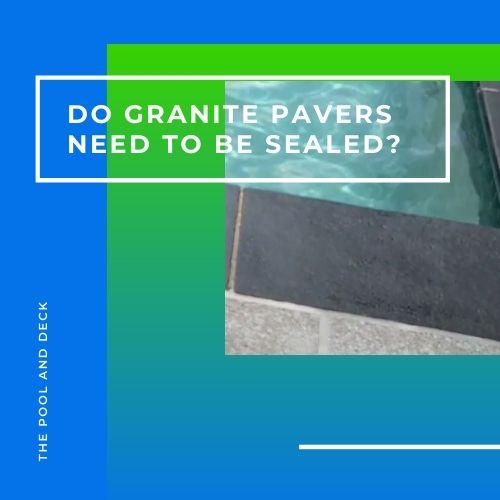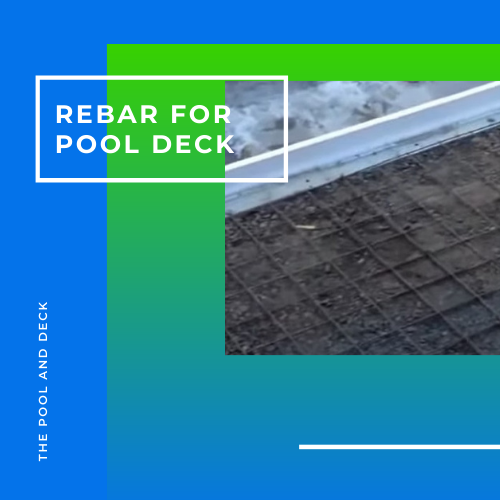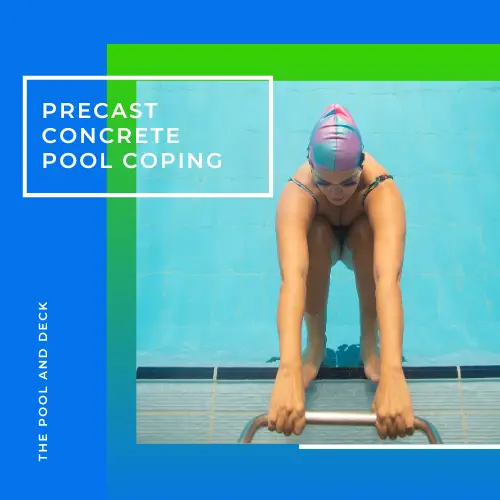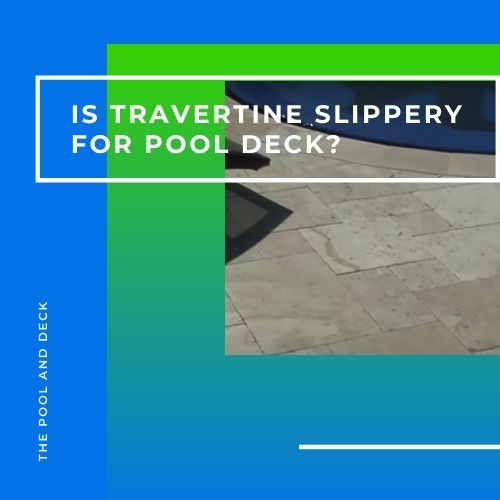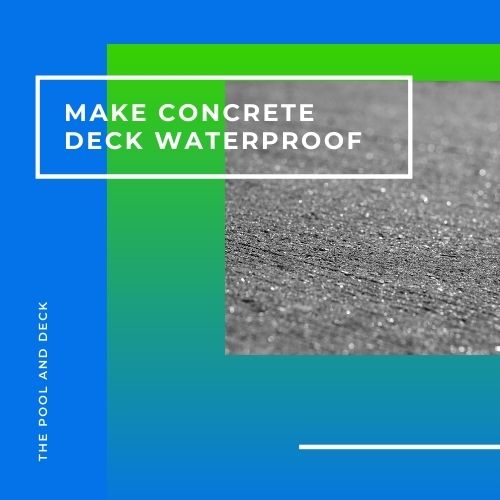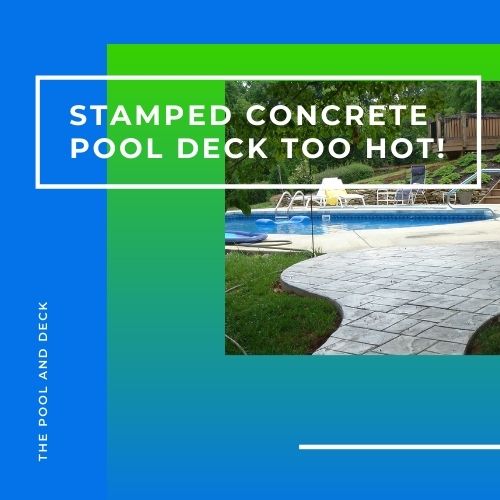Composite Pool Coping: 7 Amazing Advantages!
Table of Contents
Is Composite Good for Pool Coping?
Yes, composite pool coping can be a great choice if your primary focus is on functional superiority and cost effectiveness. Composites are engineered wood and can therefore be designed & manufactured to meet almost all of pool coping requirements very well.
Pool coping is an integral part of the pool and deck system. The coping is more than just a visual design feature. It serves several important functions.
As such the material used must be chosen based on your budget, aesthetic appeal and functional benefits. Composite pool coping has several amazing advantages that makes it a terrific choice for budget conscious pool owners.
Composites can be manufactured in a range of colors, textures and patterns, to replicate the looks of real wood or natural stone around the pool edge. However, they always have a synthetic, somewhat tacky look.
Do not expect your composite pool coping to be a show stopper.
But when it comes to features like slip resistance, chemical resistance, UV resistance and weather resistance, your composite pool coping will outperform most of its costlier competitors.
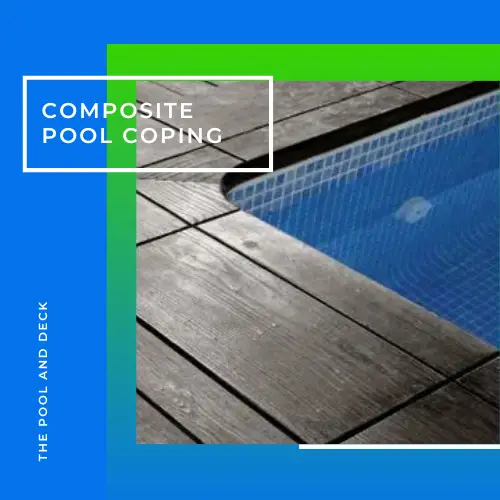
What Is Composite Pool Coping?
Coping is the border around the pool’s perimeter and separates it from the deck. Pool coping is pretty much an essential part of pool and deck construction as it serves a range of important functions such as:
- Protecting the pool wall and foundation from water ingress
- Keeping the deck dirt & debris from getting into the pool
- Providing a ledge for swimmers to hold onto and pull themselves out
- Adds to the aesthetic appeal of the pool and deck
There are a range of different materials that can be used for pool coping. Concrete and natural stones such as travertine or granite are the most common ones. However, other materials such as brick, PVC and composites can also be used.
Composites are made from a combination of plastic and wood fibers. Quite often both the plastic and the wood fibers are recycled from waste products. Composites are a type of engineered wood.
The manufacturing process can be designed to impart special properties to the composite such as high resistance to abrasion, weathering, pool chemicals and temperature fluctuations. Surface features such as texture, color, patterns and slip resistance can also be imparted during production.
Composite pool coping is also lightweight and is relatively easy to install. It is resistant to stains and requires little maintenance beyond occasional cleaning with soap and water.
Composites, being synthetic, are an affordable and attractive option for many outdoor applications such as decking and pool coping.
What Are the Advantages of Composite Pool Coping?
Since composites are man-made they can be designed and manufactured as per the needs of the end use. When it comes to composite pool coping presented here are some of the notable advantages:
1. Slip Resistance:
Composite pool coping is specially designed to have a slip-resistant surface, making it a safe option. The risk of slips and falls is particularly high on the pool coping as it is usually wet.
Swimmers, especially kids, love to run around on the pool coping, jumping off it into the pool and generally having lots of fun.
2. Comfortable to Touch:
A major problem with many pool coping materials such as concrete or some natural stones is that they can get unbearably hot under the sun. Composite pool coping, on the other hand, is typically designed to have a high specific heat.
Not only does composite pool coping not get as hot as other materials, it also has a cushioning feel and is more comfortable to walk on with bare feet.
3. Resistance to Elements:
Manufacturers of composite pool coping typically incorporate special additives in the formulation and use custom processing parameters to make it highly resistant to the elements. Composite pool copings have:
- UV Resistance: It will not fade even under the harsh summer sun
- Chemical Resistance: Pool water has chemicals and can be acidic at times. However, composites are not adversely affected.
- Abrasion Resistant: Composites have a very good resistance to abrasion, wear & tear, making it long lasting.
4. Durability:
High resistance to the elements makes composite pool coping highly durable and weather resistant. Composites will not crack, even in areas that see a wide range of temperatures, as they have a low coefficient of expansion.
5. Easy To Install:
Composite pool coping is lightweight and easy to install. You need only simple tools and techniques for the installation..
Since, it is possible to do the Installation as a DIY project, you can save a fair amount of money. On the other hand, installation of concrete or natural stone pool copings require professional services, which are quite expensive.
6. Cost Effective:
In addition to a saving in installation costs you will also save on the material cost. Composites are certainly a lot cheaper than natural stone and even brick coping. The cost may be comparable to concrete pool coping.
However, actual cost can vary on a host of factors including material quality and pool location. So do check out the actual costs relevant to your specific location and requirement.
7. Environmentally Friendly:
If you are concerned about reducing waste and being environmentally friendly then composite pool coping is a good choice. Many composite materials are made from recycled materials and help in reducing global waste.
What Are the Disadvantages of Composite Pool Coping?
Composite pool coping is strong on functional advantages but does fall short on aesthetics. As an engineered wood product, composites can be imparted with almost any color, texture or pattern.
Composite pool copings can mimic the look of natural wood or natural stone. However, the operative word is “mimic”.
Composites can never be the real thing! Composites are never able to exude the same warmth, earthiness or natural feel.
Natural stone copings, for example, offer a unique and natural look that brings elegance and sophistication to your pool and deck. There are a variety of natural stone materials to choose from, including granite, slate, and travertine. Each material has its unique characteristic color, texture and veining.
Brick pool copings, though not as impressive or opulent as natural stone, do look muted & traditional and add a lot of character to your pool. Even stamped concrete pool coping can be made to look fairly impressive with the right design and excellent execution.
Bottom Line
Composite pool copings are unlikely to turn any eyes or win any accolades for classiness but it gets the job done. It’s a great choice for the budget conscious and those who value functionality over looks!
Thank you very much for reading the post. I do hope you found it informative and helpful.

